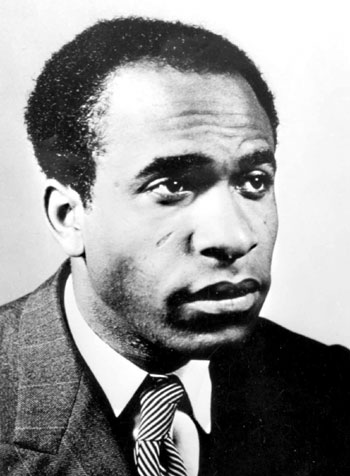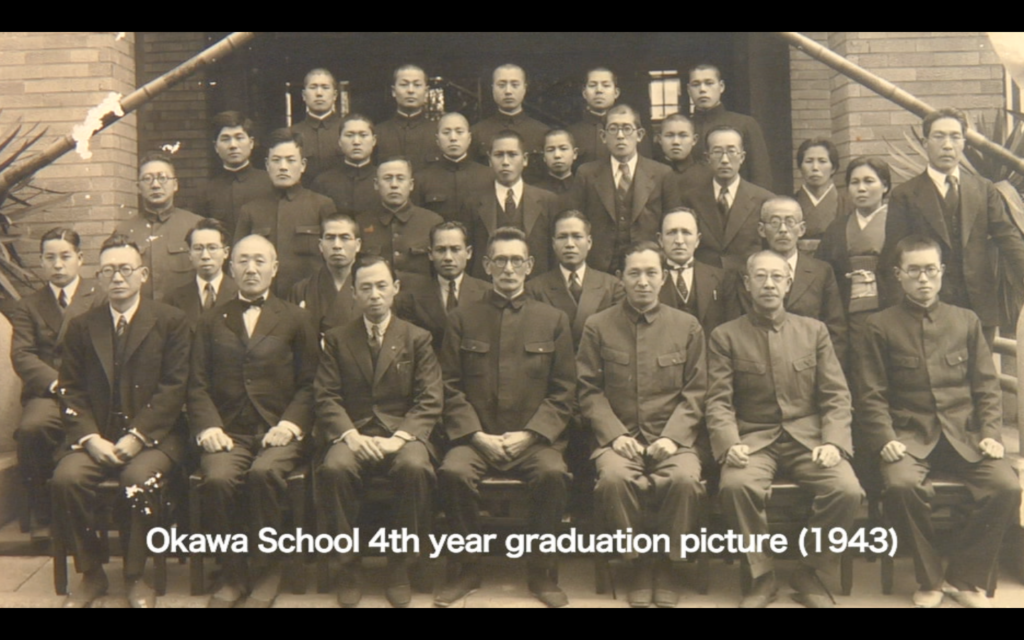
This documentary film project, currently work-in-progress, is about;
Section A – Okawa-juku, an alleged “spy” fostering school, recorded in an official interrogation report submitted for the International Military Tribunal for the Far East, a.k.a. Tokyo Trial. and its founder Dr. Shumei OKAWA who was indicted as one of the twenty-eight Class A War-Criminals* at the Tokyo Trial after the WW II. (by Max Uesugi)
Section B – Additional considerations from historical perspectives of Japan, and of colonial histories elsewhere. (by Reiko Tahara)
The aim of this project is to provide;
actual accounts of Okawa’s disciples and records of Okawa himself, as well as our personal perspectives on the subject from historical and international angles in relation to Western domination in Asia and Japan’s actions to cope with it. We hope that this film will be a reference for every audience to reevaluate their views on WWII in Asia, especially Japan’s actions from pre-war period to the current, within the context of ever-changing international relations and still existing colonial relationships among the countries around the world.
This is Dr. Shumei OKAWA – .
In an memorandum dated March 1946 prepared by an US attorney, Hugh B. Helm, for General Headquarters (GHQ), the Supreme Commander for the Allied Powers (SCAP) International Prosecution Section, described Dr. Shumei OKAWA as below:
“It is not an exaggeration to characterize Dr. OKAWA as the brain-trust of military extremists.”
“…, he set forth the same principals that were later incorporated by Matsuoka and Tojo into the Greater East Asia Co-Prosperity ideas. It is not amiss to credit Dr. OKAWA with being the father of the Greater East Asia idea,…”
“…, it is to be recalled that this man, Dr. OKAWA, from 1938 to 1945 personally ran a school for espionage, wherein spies were trained for Japanese Government to be placed throughout Asia.”
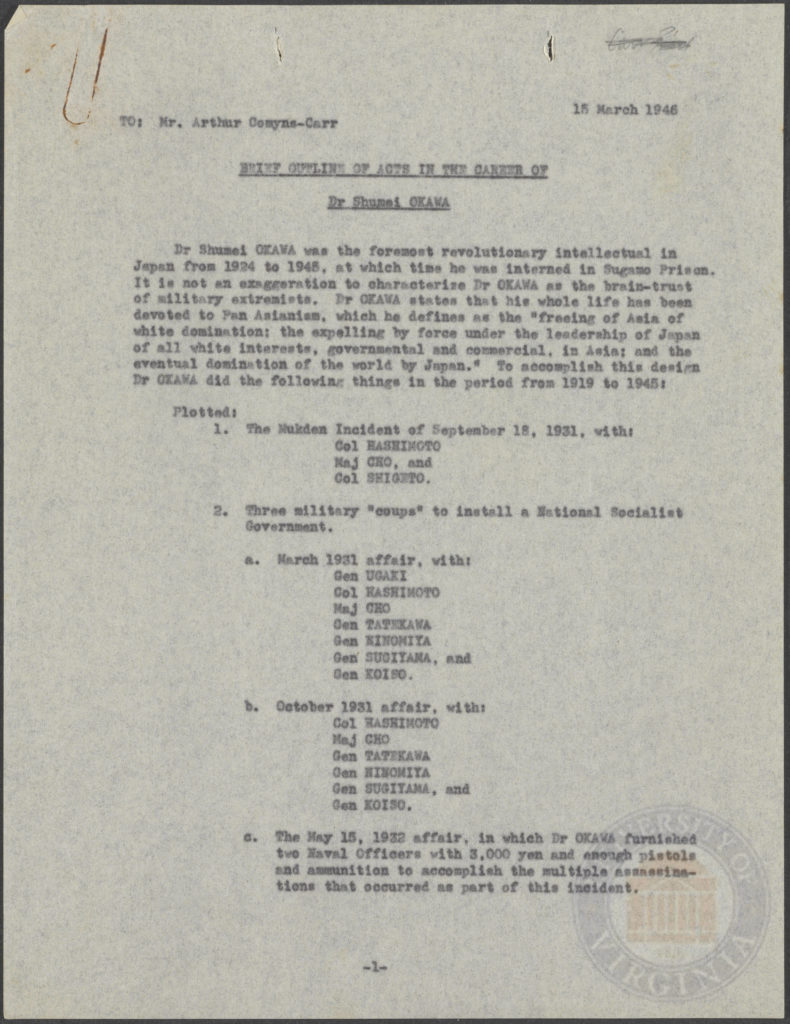
BRIEF OUTLINE OF ACTS IN THE CARRER OF Dr. Shumei OKAWA
The SCAP then proceeded to indict Dr. Shumei OKAWA, considering him as one of the masterminds of the Japanese military invasion throughout the Asia.
When the Tokyo Trial was held in May 1946, however, Dr. Shumei OKAWA started acting erratically. He started crying and suddenly slapped the war-time Premier and General Hideki TOJO’s head from the back and was taken out from the court*.
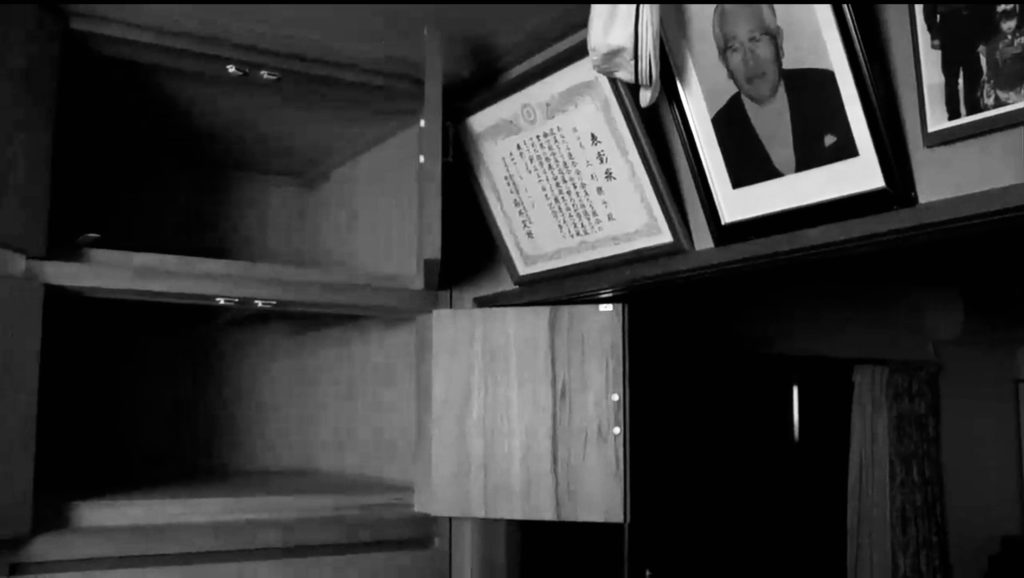
Max Uesugi, the half of the filmmaker team, found the fact that his late father, Hideo UESUGI who had died of cancer in 1996, was one of the 96 students who graduated from the alleged “spy” school. The finding happened by accident when he and his filmmaker partner Reiko were cleaning his parents’ house in Japan in the summer of 2007.
Who is Dr. Shumei OKAWA whose name was hardly recognized among the vast majority of Japanese who grew up in post-war Japan, despite of his allegedly being a notorious Class A war criminal?
What is Okawa-juku which was presented in the indictment as one of the evidence of Dr. OKAWA’s war crimes?
What roles did the Okawa-juku graduates play? Did they commit espionage crimes and if so what sort of?
Surprised and shocked to know his father had been related to a Class A war criminal, Max began researching the unknown alleged spy school and started talking to the surviving Okawa-juku graduates. What he heard from them was completely unexpected and changed his views on WWII forever.
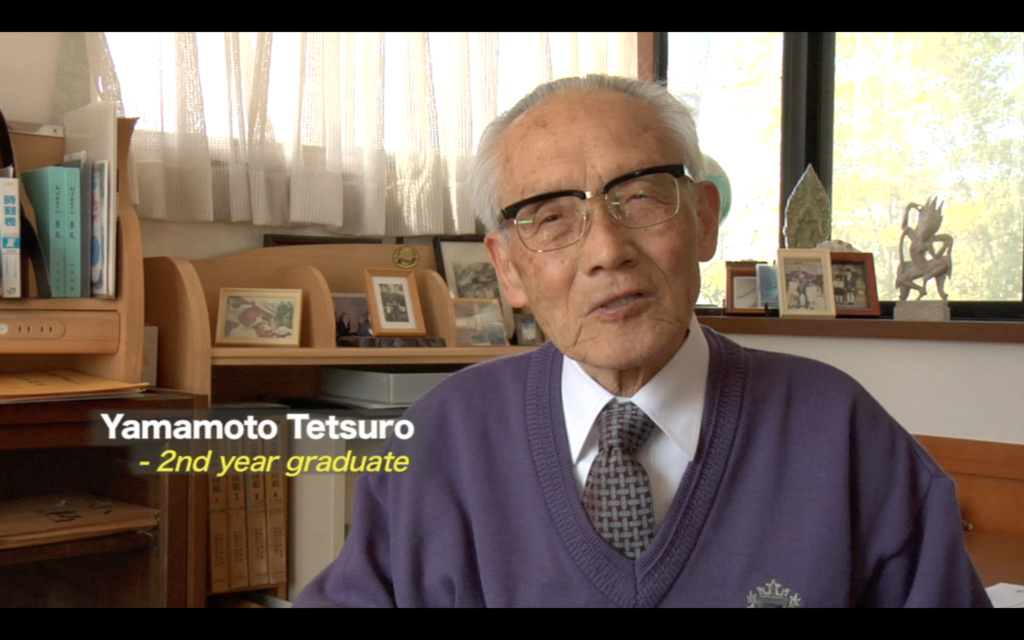
At the same time, co-director Reiko Tahara also began researching on Dr. OKAWA deeply. Together with Max she went to National Archives in Washington D.C.. As she learnt more about Dr. OKAWA and his philosophies, however, she gradually realized that she wanted to take a different approach than Max’s. By learning about the same man, their thoughts started drifting away from each other, which upset the filmmaker duo. This film will be a record of their drift, and their invitation to ponder with them.
